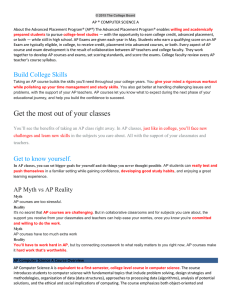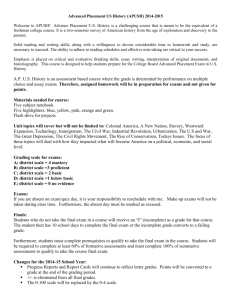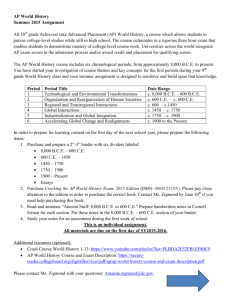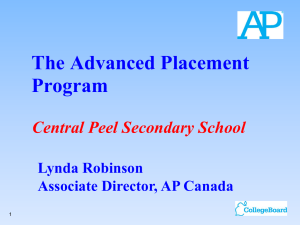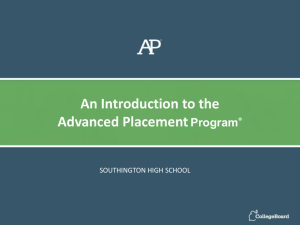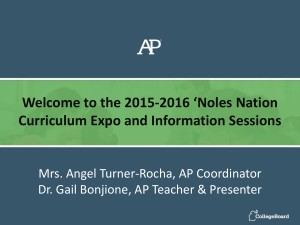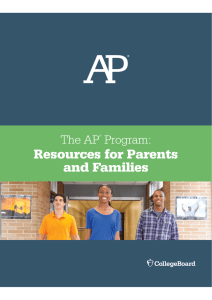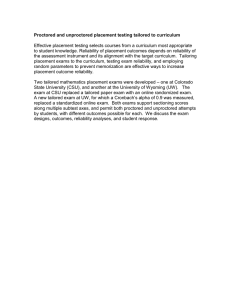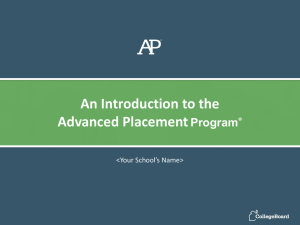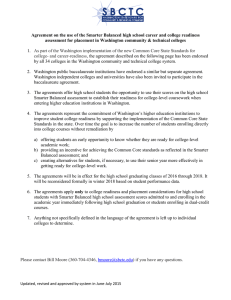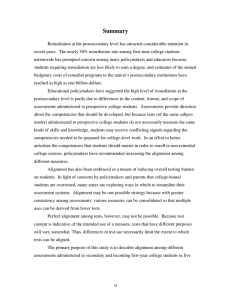Why Take AP World History - Marlboro Central School District
advertisement
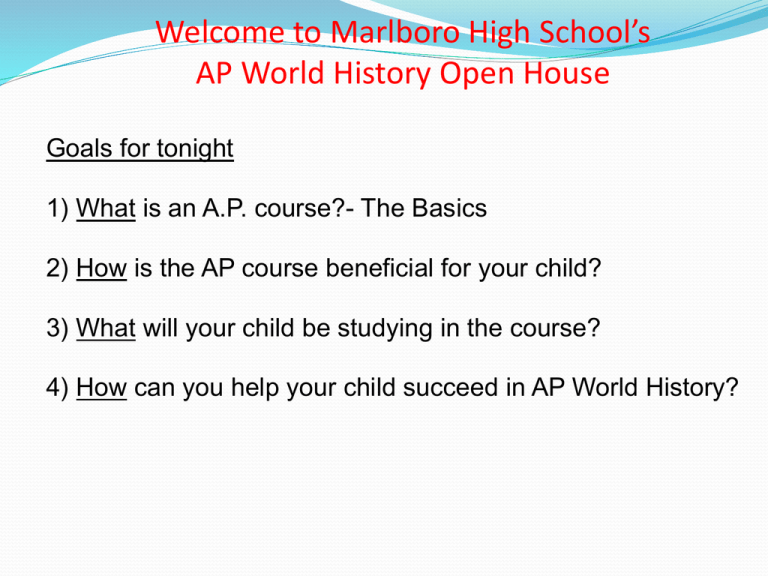
Welcome to Marlboro High School’s AP World History Open House Goals for tonight 1) What is an A.P. course?- The Basics 2) How is the AP course beneficial for your child? 3) What will your child be studying in the course? 4) How can you help your child succeed in AP World History? What is an A.P. course? The Basics Advanced Placement Program® (AP®) courses are college-level courses offered in high school. AP courses reflect what is taught in top introductory college courses At the end of course, students take AP Exams— standardized exams that measure how well students have mastered college-level course work. Students who do well on AP Exams can earn credit and/or placement into advanced courses in college. What will your child be studying in the AP World History Course? Unit 1. Technological and environmental transformations Beginnings of history to-600 B.C.E. Unit 2: Organization and reorganization of Human Societies 600 B.C.E. to 600 C.E. Unit 3: Regional and Trans regional Interactions 600 C.E. to 1450 C.E. Unit 4: Global Interactions 1450 C.E. to 1750 C.E. Unit 5: Industrialization and Global Integration 1750 C.E. to c. 1900 C.E. Unit 6: Accelerating Global Change and Realignments 1900 C.E. to the present What makes AP Courses different? AP courses demand A LOT of students: Classes tend to be fast-paced and cover more material than typical high school classes. More time, inside and outside of the classroom, is required to complete lessons, assignments and homework. AP teachers expect their students to think critically, analyze and synthesize facts and data, weigh competing perspectives, and write clearly and persuasively. What students can expect in the course Intensive reading of Primary sources and the Textbook Fierce debate around historical & modern issues Critical and analytical thinking, speaking, and writing Intensive civic participation, and social awareness Writing, Writing and more Writing How can you help your child succeed in AP World History? Ask questions about their day and ask them to explain what they are learning in each class. Schedule time for about 1 ½ hours of homework per night, & give your child space to complete it. Praise and reward your child when it’s deserved. Impose healthy eating habits, and make sure they get enough sleep every night. Read, read, read. Make sure they read every night! Encourage them to attend extra-help sessions. AP Honor Code Individual student integrity is a standard of excellence for Advanced Placement students Cheating and plagiarism will not be tolerated AP Courses and their course work supersede athletics and other extracurricular activities Attendance Attendance is very important in AP classes Extensive material is covered in a single class setting Students do not want to miss discussion that will clarify any misunderstandings from their readings Every day in an AP class is preparing them for the AP test AP Exam Thursday, May 14 2015- 8:00a.m. 70 Multiple Choice Questions = 55 min. 3 Essay Questions Compare/Contrast = 40 min Change and Continuity Over Time = 40 min Document Based = 50 min Every student who is enrolled in an AP course takes the exam. The fee for each AP Exam is $91. AP Student Central Credit Policy New York University New York, NY Offers credit for AP Exams- Yes Offers placement into higher-level courses for AP Exams –Yes Min. Score required- 4 Number of credits -4 Teacher Contact Information Best way to contact me is through email: Yeleny.estevez-cummings@marlboroschools.org Extra help: Wednesday’s after school or by appointment. Teacher Website: http://marlboroschools.schoolwires.com/Domain/111
